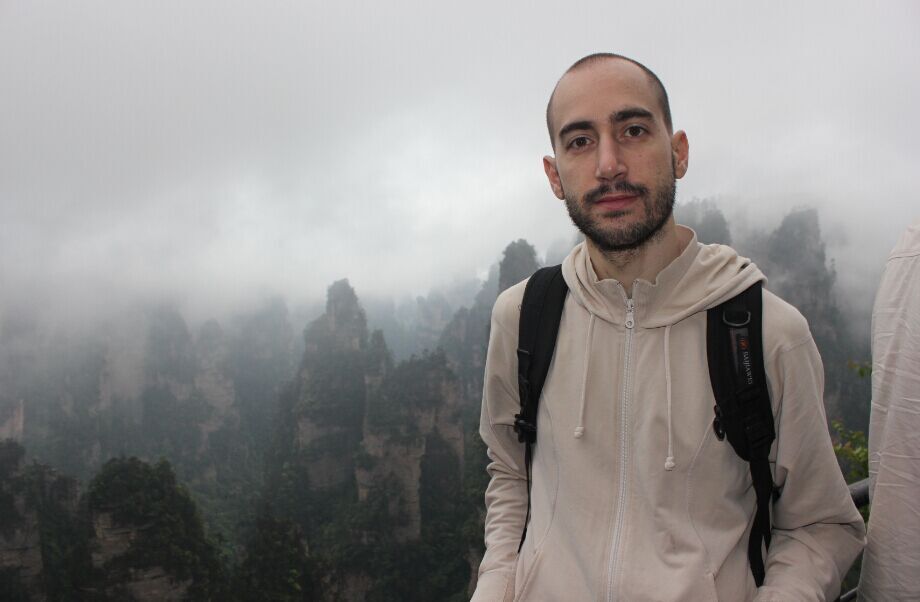


By DR. Luis Herranz, PIFI postdoctoral fellow with the Institute of Computing Technology, CAS
Before joining Chinese Academy of Sciences (CAS), I had already visited China three times. I was captivated by its contrasts, diversity and increasingly important scientific community. After finishing my Ph.D. in Spain, the lack of career opportunities made me explore other options abroad. Eventually, I found in China the necessary support to continue my career and research thanks to CAS and NSFC Research Funds for Young Scientists.
For a foreigner, research in China sounds really exciting… and intimidating. I lived and worked in UK before. While Spanish and British cultures are very different, the change coming to China was definitely much bigger. Usually, labs in UK are multicultural, with most researchers being foreigners, while in my host lab in CAS I am the only foreigner. Thus, fitting in such imbalanced environment is more difficult.
The most common worry of foreigners is the language, not only in the lab but also on the street. And it is indeed a barrier. But in fact conversational Chinese at elementary level is not as difficult as it seems. I recommend spending some time learning Chinese at the beginning. These first months in China are very exciting, especially when you find yourself communicating in a language that seemed impossible not so long ago. When you are able to speak a few sentences, the Chinese people, already curious about foreigners, become even more friendly. In my case I have studied Chinese here for a long time in parallel with my research, but at some point I had to give up the language. Intermediate and advanced levels are increasingly time-absorbing, which does not match well with full time research.
In environments such as CAS institutes, most students and researchers can understand and speak English (unfortunately, administrative staff usually cannot, with the notable exception of foreign affairs officers). However, most of them are far from comfortable using English to communicate, so it is a natural tendency to keep to their comfort zones by avoiding situations that require its use. But this can lead to foreign researchers being isolated, particularly when there are no other foreigners around. Personally I decided to let my colleagues discuss in Chinese, which helps them to express their ideas more freely, and keeping the discussion agile. I try my best to follow them and participate (with some help, such as slides written in English, asking them when I get lost). But this solution is often not possible, and also depends on the particular case. In my opinion, using English is more appropriate in general since that is the language we use in papers and international research forums. It also helps to integrate foreign researchers and makes it easier for them to contribute with their own ideas.
A very important concern, yet often not understood, is the difficulty of accessing information. After all, research is about sharing knowledge. Foreign research sites such as Google and YouTube are important tools for finding papers, code, lectures and other resources. So not having access to them disrupts our work habits completely. This problem is often not well understood or minimized by Chinese researchers, who seldom rely on these tools. They rely on Chinese counterparts such as Baidu, Youku or similar, and content re-uploaded in Chinese blogs. The problem is that local search engines are great for Chinese content, but not for English, and a foreigner will hardly use them since the descriptions are in Chinese. Not having faced this problem, both foreigners abroad and Chinese hardly comprehend it. While it is often possible to use alternative sites, or even Chinese ones, I still waste precious time every day in these tasks and feel that I’m not well informed of the latest works and lectures.
Looking back, even after all these difficulties, I must say that I am very happy to have come to China and CAS in particular. It took a while to adapt to the environment, and to deal with daily frustration in several aspects. My own research topics have evolved since I arrived. After some time feeling a bit stuck in my previous research on multimedia, I’m very grateful to my host researcher Professor Jiang Shuqiang for giving me the opportunity to participate in other projects exploring new directions on computer vision and machine learning. I’m also grateful to the students, because without their hard work and ideas many projects would not have been developed. Sometimes, a step back is better to have a broader view and refocus on more suitable problems. While it required some learning time, I feel excited again and also feel that I can contribute more now.Working in China is not an easy choice for a foreigner, but many researchers are coming because it is likely to be a good decision in the long run. However, adapting to a new environment, in which the overwhelming majority are not foreigners, is difficult for most people. Thus, to minimize frustration, it requires more empathic understanding from both parties, and some effort towards a more fruitful integration and collaboration. Nevertheless, it is a matter of time until CAS institutes become more international (recently it was announced that CAS would increase the number of foreigner researchers from 1 percent to 3 percent).
Initiatives such CAS training courses for international personnel, master and doctoral programs for international students, and joint programs with foreign universities will greatly help to bridge these cultural and social gaps between Chinese and foreign researchers.

“In environments such as CAS institutes, most students and researchers can understand and speak English (unfortunately, administrative staff usually cannot, with the notable exception of foreign affairs officers). However, most of them are far from comfortable using English to communicate, so it is a natural tendency to keep to their comfort zones by avoiding situations that require its use.”
- DR. Luis Herranz, PIFI postdoctoral fellow with the Institute of Computing Technology, CAS